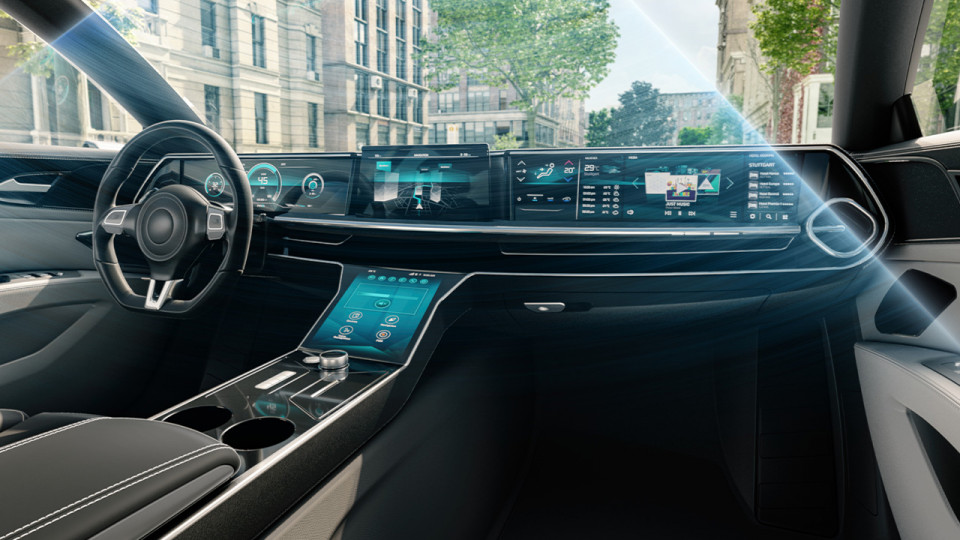Budapest – Researchers and developers who meet for the first time in the world at the Conference on Cognitive Mobility held at the Bosch Budapest Innovation Campus on 12-13 October are working to increase the efficiency and safety of transport and to optimise everyday mobility. Covering a wide range of disciplines, they seek answers to questions that determine the everyday life of the future, such as how machine detection – based on cameras, sensors and lasers – can make transport safer, how it can improve human perception, how it can speed up or make mobility more affordable in everyday life, for example by reducing traffic jams, thus contributing to a more liveable environment in future cities.
“At Bosch Group in Hungary, thousands of engineers are committed to researching the automotive technologies of the future to help us in our everyday lives. Cognitive mobility is an emerging field of science that combines transport developments and brings synergies to the benefit of society", said István Szászi, representative of the Bosch Group in Hungary and in the Adria region.
"Machine detection can make traffic more efficient and safer, as human neglect is the greatest uncertainty factor. Technological development has reached a level where developments based on automotive and artificial intelligence can be combined with a cognitive approach to social sciences and used as a unified system for the benefit of society ", said Máté Zöldy, head of the Innovative Vehicle Technologies Competence Center of the Budapest University of Technology, chair of the conference.
Communicating transport hubs, sensors monitoring the motorcyclist's posture
The comprehensive approach to cognitive mobility is exemplified by developments aimed at building smart, communicative and networked transport hubs. Such a system not only monitors the movements and intentions of vehicles, but also pedestrians and cyclists, and regulates momentary traffic in such a way as to minimize traffic jams. The system shall be able to send a signal to vehicles as to the speed at which they approach the hub so that they do not have to stop. In the longer term, you can even instruct the automated vehicles to slow down, all by processing information from cameras, sensors, laser sensors and artificial intelligence.
Another study serves the safety of motorcyclists. The rider's posture leads it to conclude his expected intentions, for example, his overtaking or cornering manoeuvre. The data collected and evaluated during the tests help machine learning so that the improved driver assistance systems for vehicles detect the intention of the motorcyclist in the vicinity as soon as possible and are more likely to avoid an accident.
First in the world in Budapest
More than thirty presentations of the first IEEE International Conference on Cognitive Mobility organized by the Budapest University of Technology and Economics and the Bosch Group in Hungary, supported by the international Institute of Electrical and Electronics Engineers (IEEE), will present the latest studies and results of Hungarian and foreign universities, research centres and development companies. The venue of the event is the Bosch Budapest Innovation Campus, which was opened on 8 September 2022.
Zita Hella Varga
Phone: +36 70 667-6374
Bosch has been present in Hungary since 1898 with its products. After its re-establishment as a regional trading company in 1991, Bosch has grown into one of Hungary’s largest foreign industrial employers with currently eight subsidiaries. In fiscal 2021 it had total net sales of 1,711 billion forints and consolidated sales to third parties on the Hungarian market of 273 billion forints. The Bosch Group in Hungary employs more than 17,000 associates (as of December 31, 2021). In addition to its manufacturing, commercial and development business, Bosch has a network of sales and service operations that covers the entire country.
The Bosch Group is a leading global supplier of technology and services. It employs roughly 402,600 associates worldwide (as of December 31, 2021) and generated sales of 78.7 billion euros in 2021. Its operations are divided into four business sectors: Mobility Solutions, Industrial Technology, Consumer Goods, and Energy and Building Technology. As a leading IoT provider, Bosch offers innovative solutions for smart homes, Industry 4.0, and connected mobility. Bosch is pursuing a vision of mobility that is sustainable, safe, and exciting. It uses its expertise in sensor technology, software, and services, as well as its own IoT cloud, to offer its customers connected, cross-domain solutions from a single source. The Bosch Group’s strategic objective is to facilitate connected living with products and solutions that either contain artificial intelligence (AI) or have been developed or manufactured with its help. Bosch improves quality of life worldwide with products and services that are innovative and spark enthusiasm. In short, Bosch creates technology that is “Invented for life.” The Bosch Group comprises Robert Bosch GmbH and its roughly 440 subsidiary and regional companies in some 60 countries. Including sales and service partners, Bosch’s global manufacturing, engineering, and sales network covers nearly every country in the world. With its more than 400 locations worldwide, the Bosch Group has been carbon neutral since the first quarter of 2020. The basis for the company’s future growth is its innovative strength. At 128 locations across the globe, Bosch employs some 76,100 associates in research and development, of which more than 38,000 are software engineers.
The company was set up in Stuttgart in 1886 by Robert Bosch (1861–1942) as “Workshop for Precision Mechanics and Electrical Engineering.” The special ownership structure of Robert Bosch GmbH guarantees the entrepreneurial freedom of the Bosch Group, making it possible for the company to plan over the long term and to undertake significant upfront investments in the safeguarding of its future. Ninety-four percent of the share capital of Robert Bosch GmbH is held by Robert Bosch Stiftung GmbH, a charitable foundation. The remaining shares are held by Robert Bosch GmbH and by a corporation owned by the Bosch family. The majority of voting rights are held by Robert Bosch Industrietreuhand KG, an industrial trust. The entrepreneurial ownership functions are carried out by the trust.
Additional information is available online at www.bosch.hu, iot.boschblog.hu, www.bosch.com, www.iot.bosch.com, www.bosch-press.com, www.twitter.com/BoschPresse





